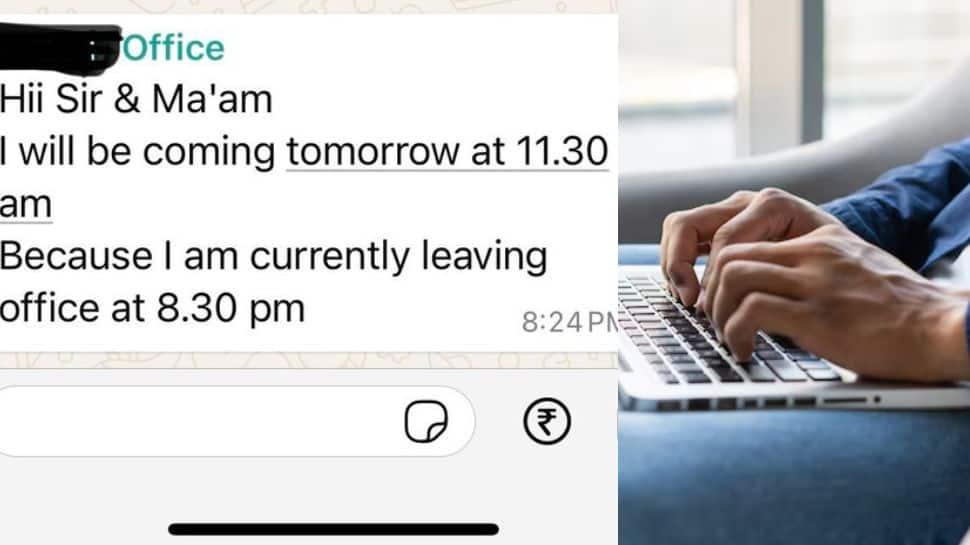 |
|
A recent incident involving a junior lawyer's request to arrive late to work after putting in extra hours has sparked a lively debate on social media, highlighting the complexities of work-life balance and the evolving expectations of young professionals. Ayushi Doshi, a lawyer, shared a screenshot of a message from her junior colleague who informed her that he would be coming in late the next morning because he was leaving the office at 8:30 PM. Doshi's post garnered a mix of responses, with some supporting the junior's decision to prioritize his well-being, while others criticized his lack of professionalism and disregard for work expectations.
Those who supported the junior's request argued that he was simply trying to maintain his productivity and avoid burnout. They highlighted the importance of setting boundaries and prioritizing personal time, especially in demanding professions like law. They emphasized that younger generations often have a different perspective on work-life balance, valuing efficiency and well-being over long hours. One commenter suggested that the junior's approach could be a refreshing perspective on maintaining productivity without compromising mental health.
On the other hand, some commenters expressed concern about the junior's lack of professionalism and disregard for work expectations. They argued that arriving late to work, even after working overtime, sends a negative message about commitment and responsibility. They pointed out that the junior's approach could create a precedent for others to follow, potentially leading to a decline in overall productivity and workplace discipline. One commenter, referencing the demanding nature of the legal field, stated that while overtime is common, the junior should have communicated his need for a later start time in a more professional manner.
This incident raises several important questions about work-life balance and the evolving expectations of young professionals. The younger generation often prioritizes well-being and flexibility over traditional notions of work ethic. However, balancing these priorities with the demands of a demanding profession can be challenging. This case serves as a reminder that open communication, clear expectations, and a mutual understanding between employers and employees are crucial for fostering a healthy and productive work environment. It also emphasizes the importance of finding a balance that respects individual needs while maintaining professionalism and productivity.
Source: Junior’s Request To "Make Up" For Overtime Leaves Indian Boss Baffled
